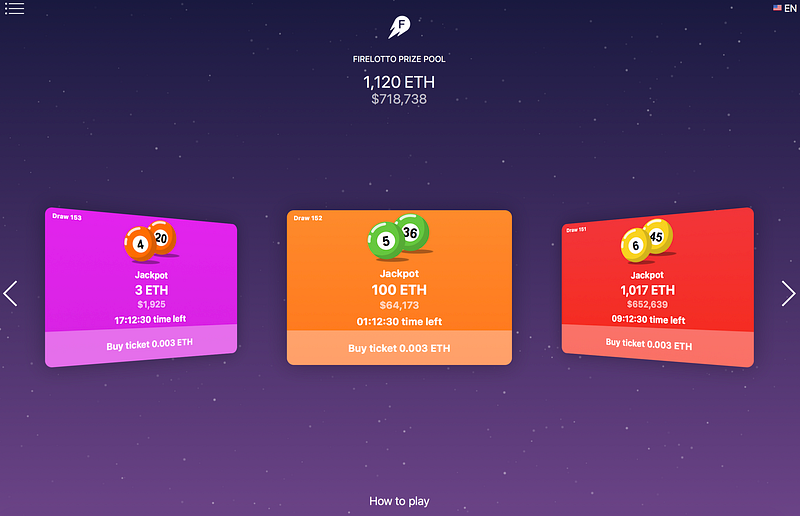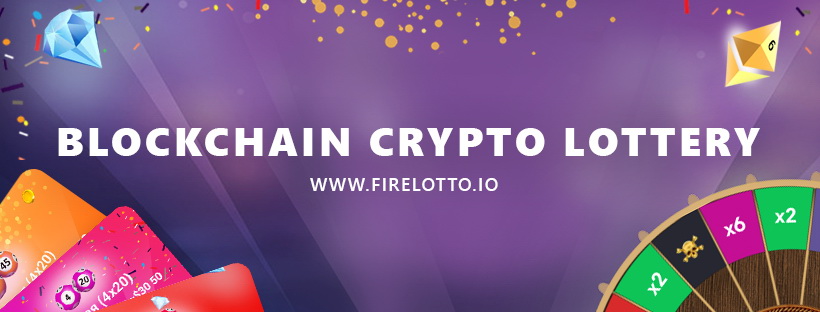When it comes to adopting technology, few industries have been as quick and efficient as the gambling sector. Over the years, various facets of gambling, including sportsbooks, poker, slots, bingo, and lotteries have found remarkable ways to take advantage of new developments. Consequently, the sector has gone from strength to strength, displaying impressive growth, and earning acceptance from one generation to the next.
Among all the technological advancements that have impacted gambling in its long history, however, none has disrupted things like the Internet. Because gambling especially lotteries involves lots of calculations, randomization and the fast exchange of data, internet-enabled computing devices have exceedingly proven their worth to the industry. Today, the online gambling industry is worth a whopping $50 billion, and analysts expect that figure to exceed $59 billion by 2020. And when we look at the global lottery industry in particular, stats indicate that it grew from $187.1 billion in 2004 to $294.3 billion in 2016, representing a compound annual growth rate (CAGR) of 4.3% per year. In 12 years from 2004 to 2016, lottery sales have declined only once, evidencing the stability of the sector. Concurrently, with growing penetration of the Internet and mobile phone adoption, online and mobile lotteries are growing everywhere. The total revenue of mobile lotteries in 2016 is estimated to be $43 billion, while 44% of the amount is generated in Europe and North America.
Unsurprisingly, lottery operators that have claimed the lion’s share of these spoils are those that were quick to realize and exploit the potential of online lottery platforms when it was nothing more than a concept. With technology changing at an increasingly fast rate, however, there’s no time to lay back. Players in the industry need to remain vigilant regarding emerging tech trends and how they’re set to change consumer behavior to ensure even greater success down the road.
Here’s a look at some of the hottest technological trends reshaping the lottery industry.
· Blockchain
Blockchain may have surfaced as the underlying security system for cryptocurrency transactions, but experts in numerous business and tech sectors are embracing it as a game-changing evolution in the exchange of value and information.
In the lottery scene, blockchain seems to be the most promising solution to problems like security and lack of transparency. By storing and managing data in the immutable and wholly transparent blockchain, operators can create a more fool-proof and reliable way to verify users online. A lottery operator can use information permanently recorded on the blockchain network to determine whether a new player is who they claim to be and ensure that they make all the necessary payments without gimmicks. Similarly, a blockchain-powered online lottery can give players more control over their information by only allowing approved parties to use it.
Perhaps an even more impressive impact of blockchain to lottery is decentralization. Unlike current gaming setups, which use a third-party point to generate and verify results that determine winners, a blockchain-based system would use a network of nodes, ideally comprising the players themselves. Decentralizing the lottery industry with blockchain technology can give players the chance to play without any control or interference from untrustworthy lottery companies.
This has seen the development of various projects such as FireLotto which seeks to revolutionize the lottery space. The project has created a completely transparent and fully decentralized platform for organizing and conducting a lottery using the blockchain technology and ETH smart contracts for collecting and distributing funds, drawing winning numbers in a random fashion, and paying lottery tickets sales commission to token holders. This means that all lottery parameters are in open source, are accessible and fully transparent 24/7.
· Big Data
Data science has been the talk of the town for a while now, thanks to an ever-growing appetite for more profound contextual insights about consumer patterns in the business world. Lottery operators, in particular, have been keen to utilize big data to shift the dynamics of the industry in numerous ways.
Every lottery has mass quantities of data, but the majority of the industry has not progressed beyond localized figures. The performance across the sector is not evaluated like top retailers and CPG brands do and without a complete data set and the right tools for analysis, growing a lottery business can be downright daunting.
But with Big Data/Data analytics this is set to change especially when it comes to real-time, comprehensive analysis of the lottery landscape. Meeting the needs of existing and prospective lottery retail chains requires an understanding of chain performance and revenue opportunities not only at the individual state level, but also at the retailer’s district, regional, and national level. And most importantly, it requires a strategic tool that can blend data from multiple sources, to broaden your data view and allow for richer insights.
GTECH, for instance, has invested heavily in building a dynamic business analytics platform that will transform the lottery industry, empowering all lotteries to identify new opportunities for retail expansion and optimization quickly and easily. Using best practices of Bid Data management and analytics, GTECH’s Retail Market Insights platform allows lottery operators to provide their customers with data-driven opportunities for growth like other major CPG companies do, by giving both rep and retailer a concrete foundation for strategic product development and other mutually beneficial decisions that grow sales.
This means that with Big Data, lotteries and lottery retail chains will be able to compare lottery sales performance across jurisdictions, to see, for example, how games and retail locations are indexing nationally and whether a particular chain is underperforming in your state. And once you have a better sense of what to expect from chain store performance, you can better manage your independent accounts as well. Identifying how and when a player likes to bet, as well as their interests and preferences allows a company to personalize its services and create precise marketing campaigns through techniques like special offers, tailored odds, free bets and push notifications.
· Artificial Intelligence (AI)
With the pool of data available to lottery companies expanding by the hour, there’s a growing need for efficient ways of utilizing it. For the lottery sector, AI is the missing link between acquiring a mountain of information and using it to create better experiences for players. Lotto is a famous and widespread game involving randomness. The lottery principle is very easy: people buy a ticket which corresponds to a combination bet over a general set of numbers. A draw is eventually done at a fixed date and time. The gains are related to how the combination matches the draw and the jackpot is won if the combination is correct. With AI, there comes in a new paradigm shift. Deep Learning has proven its ability to solve many different problems from handwriting and speech recognition to computer vision. The structure of the algorithms is based on a reproduction of the human brain. Sophisticated AI software allows for extremely accurate product personalization. It can learn what a user likes and offer them solid recommendations on how to get the most from a lottery platform.
Analysts are also looking into AI as a potential solution for gambling addiction. BetBuddy, a recently launched AI package, analyses online gambling behavior to detect compulsive activity and make accurate predictions about at-risk players. Additionally, artificial intelligence is facilitating seamless virtual communication between lottery companies and their clients. Today, customer service chatbots are highly effective at gauging the context of conversations and settling customer queries.
· Internet of Things (IoT)
As one of the most talked about innovations in recent years, IoT presents some attractive elements for the lottery industry. For starters, the increasing number of IoT devices means more data collection points, from which lottery operators can get actionable data on user experience, player preferences, and emerging trends. The numerous communication channels powered by IoT can enable online lottery operators to better engage with their customers via smart devices, collecting feedback and creating new streams of data to cultivate more connectivity.
Within the same scope of IoT is mobile technology, which currently accounts for more than 160 million players in the gambling space. Portable computing devices like smartphones and tablets offer fast, convenient and straightforward experiences to gamers on the go. And with the number of IoT gadgets in use globally set to reach 20 billion by 2020, the lottery space will only get bigger.
· Virtual Reality (VR)
Big Data, Blockchain, Artificial Intelligence, and the Internet of Things may be hot topics in the online lottery world, but none of them seem to be shaking things up as much as VR. In fact, Juniper estimates that bets made in online VR gambling arenas will total $520 million in 2021, up by a staggering 800 percent from $58.5 million in 2016.
Among the motivators behind the massive investment being made by online casinos in VR seems to be the perceived entry into the millennial gambling market. Unlike older generations, which may be content with simple online platforms, millennial gamblers have a preference for more immersive experiences, thanks mainly to the fact that they grew up surrounded by video games and realistic media.
Virtual reality promises this new generation of gamblers a more interactive and enjoyable experience, in which they can get the complete feel of the game and even play with friends. Although VR is still a fair distance from becoming as much a common gambling tool as smartphones, developers are increasingly releasing content, and manufacturers like Samsung and HTC are keen on pushing the technology to the mainstream.
As the number of players keen on adopting VR continues to rise, the operators that adapt to these changes the fastest will be the ones that reap the biggest rewards.
The Bottom Line
Meeting the needs of today’s existing and prospective lottery retail chains can certainly be achieved if we come together as an industry. The lottery industry has evolved tremendously over the years, steadily leveraging various innovations and using them to create better experiences for its ever-evolving client. Like the developments that came before, the trends above are set to make, lotteries, particularly in the online space, thoroughly exciting. Operators will once again need to revise their strategies to make the best use of new technologies and keep up with the changing landscape.
Join Fire Lotto telegram: https://t.me/firelotto
